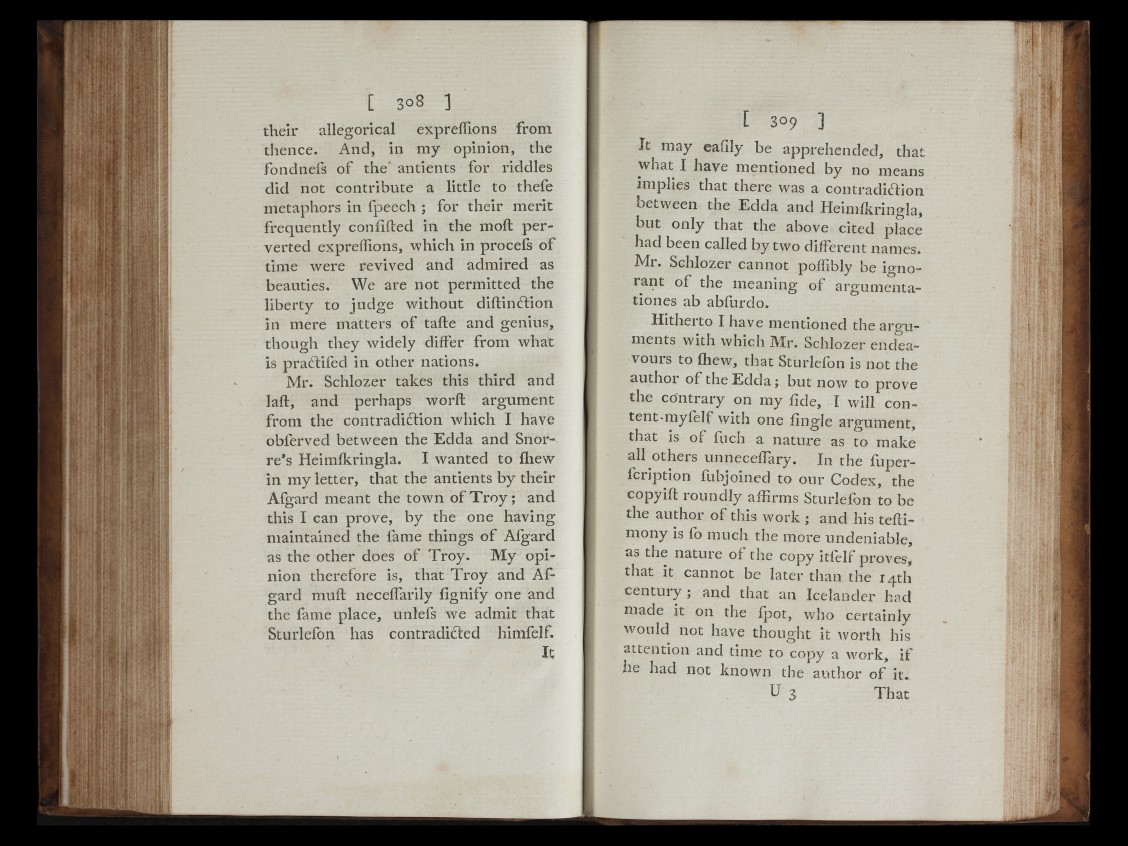
. ■
their allegorical expreffions from
thence. And, in my opinion, the
fondnefs o f the antients for riddles
did not contribute a little to thefe
metaphors in fpeech ; for their merit
frequently coniifted in the moil perverted
expreffions, which in procefs o f
time were revived and admired as
beauties. We are not permitted the
liberty to judge without diilinflion
iu mere matters of taile and genius,
though they widely differ from what
is pradtifed in other nations,
Mr. Schlozer takes this third and
lail, and perhaps woril argument
from the contradiction which I have
obferved between the Edda and Snor-
re's Heimikringla. I wanted to fliew
in my letter, that the antients by their
Afgard meant the town of T ro y ; and
this I can prove, by the one having
maintained the fame things o f Afgard
as the other does o f Troy. My opinion
therefore is, that Troy and A f gard
muil neceffarily iignify one and
the fame place, unlefs we admit that
Sturlefon has contradidled himfelf.
It
It may eafily be apprehended, that
what I have mentioned by no means
implies that there was a contradiaion
between the Edda and Heimikringla,
but only that the above cited place
had been called by two different names.
Mr. Schlozer cannot poffibly be ignorant
o f the meaning o f argumenta-
tiones ab abfurdo.
Hitherto I have mentioned the arguments
with which Mr. Schlozer endea-
vouis to ffiew, that Sturlefon is not the
author o f the Edda ; but now to prove
the contrary on my fide, I will con-
tent-myielf with one fingle argument,
that is o f fuch a nature as to make
all others unneceffary. In the fuper-
fcription fubjoined to onr Codex, the
copyift roundly affirms Sturleibn to be
the author o f this work ; and his teili-
mony is fo much the more undeniable,
as the nature of the copy itfelf proves,
that it cannot be later than the 14th
century ; and that an Icelander had
made it on the fpot, who certainly
would not have thought it ^vorth his
attention and time to copy a work, i f
he had not known the author o f it.
U That
A
J
ts - ‘.
‘■‘4